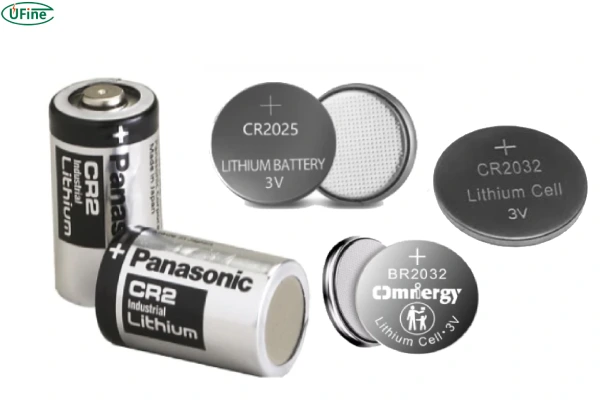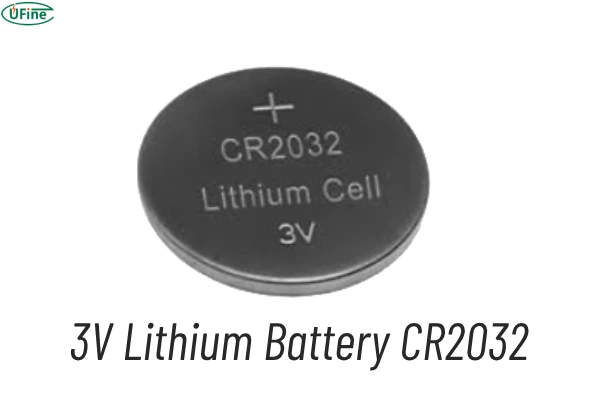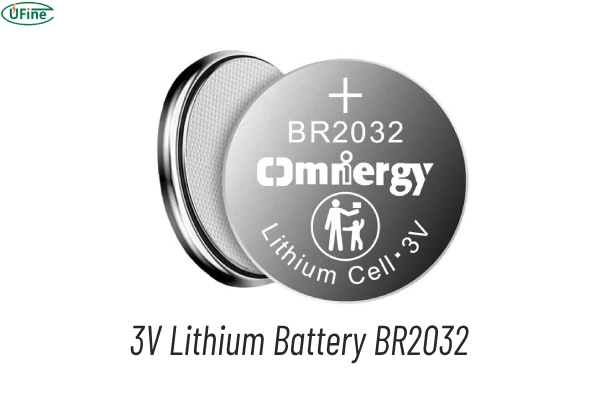In our tech-driven world, the importance of reliable power sources cannot be overstated. From our home electronics to critical medical devices, batteries are the silent force that keeps everything running smoothly. Among the wide array of battery types, the 3V lithium battery stands out for its efficiency, longevity, and versatility. Whether you’re changing the battery in your car key fob or your smartwatch, you may not realize just how vital the tiny 3V lithium battery is. But why is it so commonly used? And what makes it better than other battery types? In this guide, we’ll explore everything you need to know about 3V lithium batteries—from their chemistry and shapes to their real-world applications and how to choose the best one for your needs.
Part 1. Learn 3V lithium battery
At its core, the 3V lithium battery is based on lithium-ion chemistry, a high-energy-density solution that provides powerful, long-lasting energy. The voltage rating of 3 volts refers to the battery’s ability to consistently deliver this power. But what makes lithium different from other battery chemistries, such as alkaline or nickel-metal hydride? It comes down to lithium’s lightweight nature and its ability to store a significant amount of energy in a small space.
Structurally, a 3V lithium battery consists of three main components: a positive cathode made of lithium metal oxide, a negative anode made from graphite, and an electrolyte that allows the lithium ions to move between the two. This movement generates the electric current necessary to power a device. What makes this chemistry particularly effective is its stability and ability to function over long periods, even in challenging environments, such as extreme cold or high heat.
For example, picture a professional hiker trekking through snowy mountains, relying on a GPS device powered by a 3V lithium battery. Even in sub-zero temperatures, this battery keeps functioning, offering reliable energy when other types would fail.
Lithium Battery VS Alkaline Battery: How to Choose?
Part 2. 3V lithium battery shapes: tailoring to device needs
3V lithium batteries are designed in a variety of shapes and sizes to meet the specific requirements of different devices. These shapes aren’t just for convenience—they’re optimized for both form and function:
- Coin or Button Cells: These are flat, disc-like batteries commonly found in watches, calculators, and remote controls. Models like the CR2032 or CR2025 are famous for their reliability in small electronics.
- Cylindrical Cells: Shaped like small tubes, cylindrical batteries are slightly larger and are used in devices like flashlights or some medical equipment. A common example is the CR123A.
- Prismatic Cells: Rectangular and flat, these cells are used in compact devices, such as fitness trackers, where space-saving is essential.
Part 3. Common models of 3V lithium batteries
When it comes to 3V lithium batteries, several models are widely used across a range of industries. Here are some of the most popular:
CR2032: One of the most common coin cells, used in key fobs, watches, and even some motherboards.
CR2025: Similar to the CR2032, but slightly thinner, making it ideal for slimmer devices.
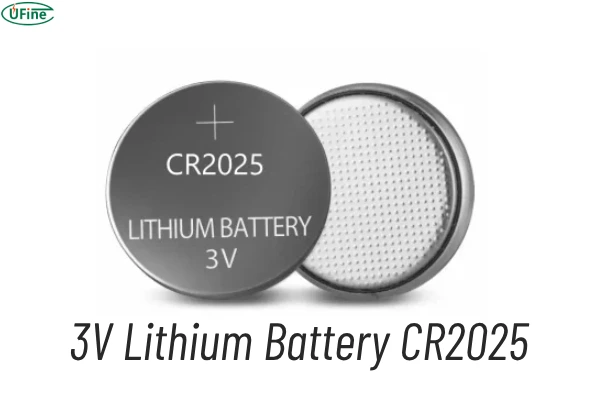
CR123A: A cylindrical battery used in high-drain devices like cameras, flashlights, and medical instruments.
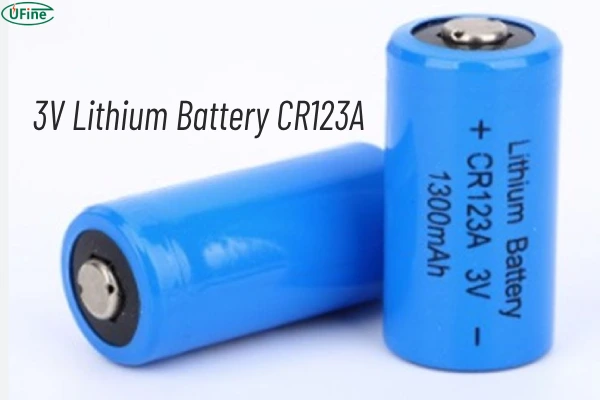
CR2: A smaller cylindrical battery, often found in compact cameras and some security devices.
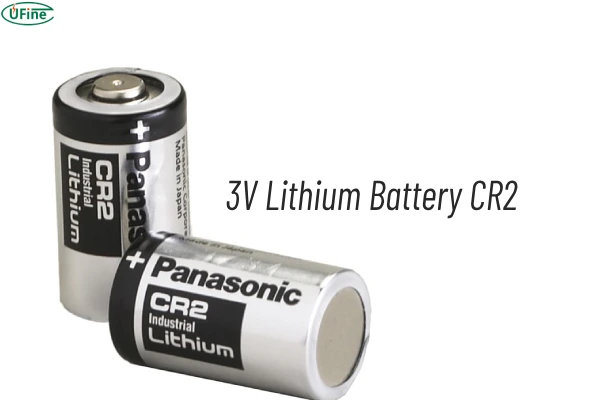
BR2032: This button cell has a long shelf life and is used in devices where durability over time is key, like memory backup systems.
Part 4. Application: where 3V lithium batteries power our lives
The versatility of 3V lithium batteries is reflected in their broad range of applications. These batteries are used in:
- Remote controls for cars, televisions, and garage doors.
- Wearable devices, including fitness trackers, smartwatches, and health monitoring systems.
- Medical devices, such as glucose monitors, hearing aids, and pacemakers.
- Cameras and other high-performance electronics, where reliable, continuous power is essential.
- Security systems, including sensors and alarms.
Part 5. How long does a 3V lithium battery last?
Battery life is always a key concern when choosing power sources. The lifespan of a 3V lithium battery depends on its usage and the type of device it powers. For instance:
- A CR2032 battery in a low-drain device like a watch can last up to 5 years.
- In higher-drain applications like a camera or a GPS, a CR123A battery may last around 1 to 2 years.
It’s important to note that environmental factors can affect battery life. For instance, extreme temperatures—either hot or cold—can shorten a battery’s lifespan. Keeping spare batteries on hand ensures that you won’t be caught off guard when a critical device runs out of power.
Part 6. Is a 3V lithium battery rechargeable?
The majority of 3V lithium batteries, especially coin cells like the CR2032, are non-rechargeable. These are designed for single use and disposal. However, some cylindrical 3V lithium batteries, like the RCR123A, are rechargeable and can be used multiple times.
Rechargeable 3V lithium batteries are ideal for devices that consume a lot of power and are used frequently, like cameras or high-powered flashlights. In these cases, investing in a rechargeable option can save both money and reduce waste over time.
Part 7. Key parameters to consider
When purchasing a 3V lithium battery, several key parameters should be considered:
- Capacity (mAh): Higher capacity means longer usage time.
- Discharge rate: Ensure that the battery’s discharge rate matches the needs of your device.
- Size and Shape: Make sure the battery fits the compartment designed for it.
- Shelf life: Some 3V lithium batteries can last up to 10 years in storage.
These parameters are crucial in determining which battery will perform best for your specific device. For instance, a high-drain device like a digital camera will need a higher capacity battery to maintain optimal performance.
Part 8. Well-known brands
Choosing a reliable brand ensures quality and longevity. Here are seven well-known brands that offer high-performance 3V lithium batteries:
- Duracell
- Panasonic
- Energizer
- Sony
- Maxell
- Toshiba
- Renata
These brands are trusted for their durability and performance, particularly in critical applications like medical devices or security systems.
Part 9. Final words
By understanding the chemistry, structure, and wide range of applications of 3V lithium batteries, you can make informed decisions about which battery best suits your needs. Whether powering your everyday gadgets or essential medical devices, 3V lithium batteries are a reliable, long-lasting solution that offers both power and peace of mind.
Related Tags:
More Articles

How to Choose the Best Floor Scrubber Battery for Commercial Cleaning?
Selecting the ideal floor scrubber battery ensures a long runtime, rapid charging, and minimal maintenance for efficient commercial cleaning operations.
Battery for Blower vs Battery for Leaf Vacuum: Which One Should You Choose?
Battery for blower vs leaf vacuum—learn the key differences in power, fit, and runtime to choose the right battery for your outdoor tool needs.
How to Choose the Right Battery for Blower?
Choosing the right blower battery? Consider voltage, capacity, chemistry & usage. This guide helps match the best battery for peak performance.
How to Choose the Best Insulated Battery Box for Lithium Batteries?
Choosing the Best Insulated Battery Box for Lithium Batteries? Discover key factors such as size, material, and safety for optimal protection and performance.
7 Critical Elements on a Lithium Battery Shipping Label
What must be on a lithium battery shipping label? Learn 7 key elements to ensure safety, legal compliance, and correct handling across all transport modes.
